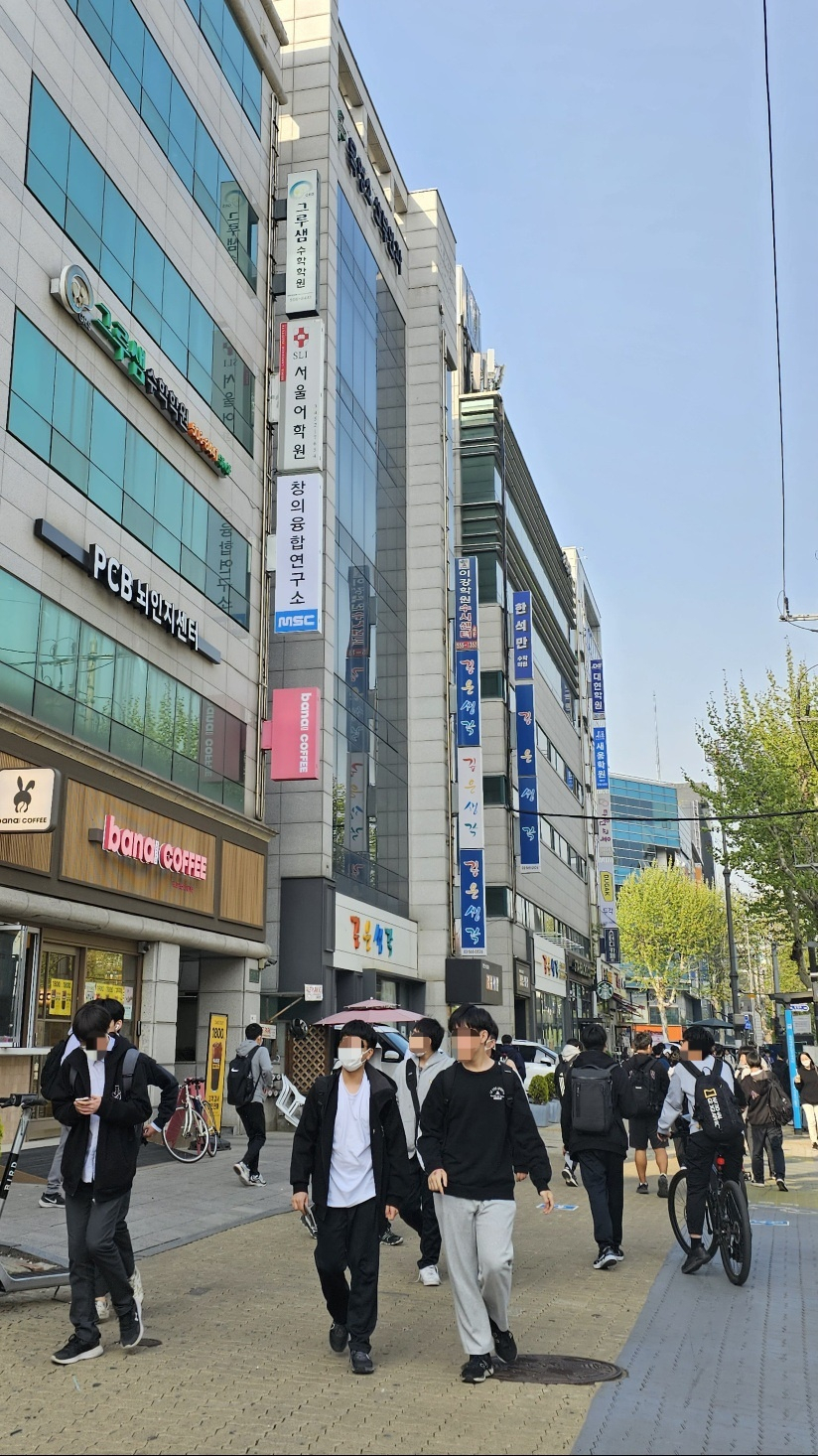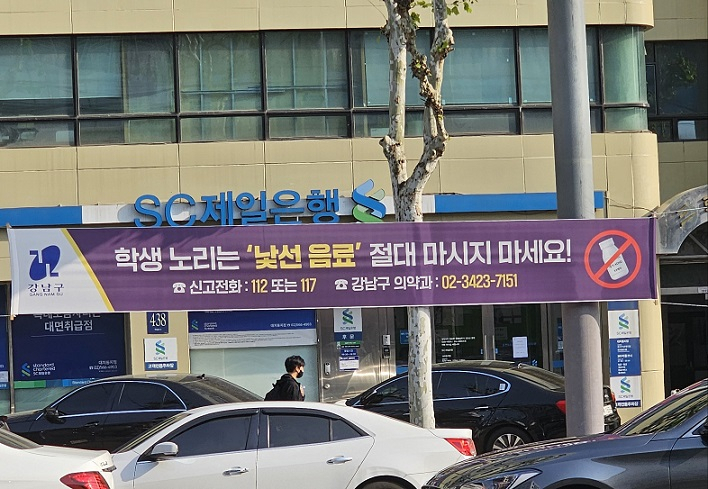ADHD pills, caffeine tabs and glucose candies: Daechi students' study aids
Seoul's private education mecca leads trends in dangerous use of 'brain-boosting' supplements
By Choi Jae-heePublished : May 2, 2023 - 14:38

Seoul's ritzy southern neighborhood of Daechi-dong is the hub of Korea's private education, where hundreds of private cram schools cater to students vying to enter the country’s prominent universities.
On April 3, an appalling scam targeting unsuspecting students on the streets of this neighborhood sent shockwaves across the nation. Over 100 bottles of drinks laced with methamphetamines and ecstasy were distributed, falsely marketed as study aids to enhance concentration and memory.
The scammers even tried to blackmail some of the victims' parents, threatening to report their children to the authorities for drug use unless they paid up.
Putting aside the audacity of their act, it raises questions: Why did they choose to target Daechi-dong among all the other neighborhoods in Seoul?

A hotbed of study drugs
The drug-infused drinks were labeled as "Mega ADHD" and handed out to teenage passersby, just like in a street promotional event.
Perhaps what made the young victims less suspicious was that in Daechi-dong, study aids such as prescription medications for attention-deficit/hyperactivity disorder, caffeine pills and energy drinks are widely used.
Some parents spoke of falsifying symptoms to get access to ADHD prescription drugs, believing they will enhance academic performance. The substance methylphenidate in ADHD medicine can help takers stay awake, energetic and focused.
“Some students are particularly vulnerable to stress before important exams and get easily distracted. Those who have maintained great academic performance would not want to spoil things due to temporary stress, so they resort to taking prescription stimulants,” said Huh, a housewife in her 50s residing in Daechi-dong who has a 17-year-old daughter.
“It is an expedient, but not illegal,” she said, explaining that some parents and students pretend to have or exaggerate ADHD when seeing a doctor.
Data shows the number of teenagers on ADHD pills has been on the rise.
In 2007, some 33,000 in their teens were prescribed the methylphenidate-based medication, which rose to 44,000 in 2021, according to data compiled by the Health Insurance Review and Assessment Service.
Between 2017-2021, a total of 199,000 teenagers received the medication.
Caffeine pills and glucose candies
While the use of ADHD drugs for studying may represent only a few extreme cases, there are many easily accessible study aid supplements that are widely used among students. Among them are caffeine tablets.
Lee Hyun-ji, an 18-year-old high school student in Songpa-gu, Seoul, has been taking caffeine pills since last year.
"Coffee and energy drinks were not enough to fight off sleepiness, especially when the exam period approaches,” she said. “I usually take one or two tablets a day. I can get a quick boost of focus and energy.”
A typical caffeine pill contains around 200 milligrams of caffeine, which exceeds the daily recommended intake for high schoolers.
According to the Ministry of Health and Welfare, individuals aged 15 to 19 are advised not to consume more than 178.25 milligrams (for males) and 143.75 milligrams (for females) of caffeine per day.
An overdose of caffeine, a natural stimulant that activates the central nervous system, could lead to side effects, including headaches, heart palpitations and insomnia.
Meanwhile, glucose candies for patients with hypoglycemia, or low blood sugar, have also become a popular alertness aid among Korean teenagers.
A search for “glucose” on Naver, Korea's largest portal site, returns a long list of related products, from glucose candies to teas and beverages.
“I eat glucose candies whenever I get sick of energy drinks. They work fast. Many students share information about nutritional supplements they are taking,” said Park Sang-yeon, a 15-year-old female middle schooler in Daechi-dong.
Glucose candies typically consist of 95 percent glucose, which can be absorbed very quickly by the body compared with other glucose-containing foods. As glucose is the major energy source for the brain, the intake of glucose could temporarily enhance students’ concentration.
However, experts caution against the candies' effect on blood sugar levels, as they can cause a rapid rise and fall in blood sugar, leading to increased fatigue after a certain period of time.
Excessive educational zeal
Some say it is parents’ excessive educational zeal that has led to the widespread use of study drugs and aids.
South Korea's highly competitive education culture, as well as Koreans’ tendency to value time efficiency, triggered the rampant use of stimulant drugs by young students, according to Koo Jeong-woo, a sociology professor at Sungkyunkwan University in Seoul.
“A growing number of young students are heavily dependent on study drugs. They should be cautious about their side effects on health and try not to be familiar with taking stimulants,” he said.
“I was shocked by the news that some parents overlook or even encourage their children to take study drugs to make them stay awake. They should teach students healthy ways such as regular sleep patterns or exercise to cope with tiredness or mental stress,” said Noh, a housewife in her 40s living in Seoul.



![[Exclusive] Korean military set to ban iPhones over 'security' concerns](http://res.heraldm.com/phpwas/restmb_idxmake.php?idx=644&simg=/content/image/2024/04/23/20240423050599_0.jpg&u=20240423183955)
![[AtoZ into Korean mind] Humor in Korea: Navigating the line between what's funny and not](http://res.heraldm.com/phpwas/restmb_idxmake.php?idx=644&simg=/content/image/2024/04/22/20240422050642_0.jpg&u=)




![[Graphic News] 77% of young Koreans still financially dependent](http://res.heraldm.com/phpwas/restmb_idxmake.php?idx=644&simg=/content/image/2024/04/22/20240422050762_0.gif&u=)
![[Herald Interview] Why Toss invited hackers to penetrate its system](http://res.heraldm.com/phpwas/restmb_idxmake.php?idx=644&simg=/content/image/2024/04/22/20240422050569_0.jpg&u=20240422150649)





![[Exclusive] Korean military to ban iPhones over security issues](http://res.heraldm.com/phpwas/restmb_idxmake.php?idx=652&simg=/content/image/2024/04/23/20240423050599_0.jpg&u=20240423183955)



![[Today’s K-pop] Ateez confirms US tour details](http://res.heraldm.com/phpwas/restmb_idxmake.php?idx=642&simg=/content/image/2024/04/23/20240423050700_0.jpg&u=)